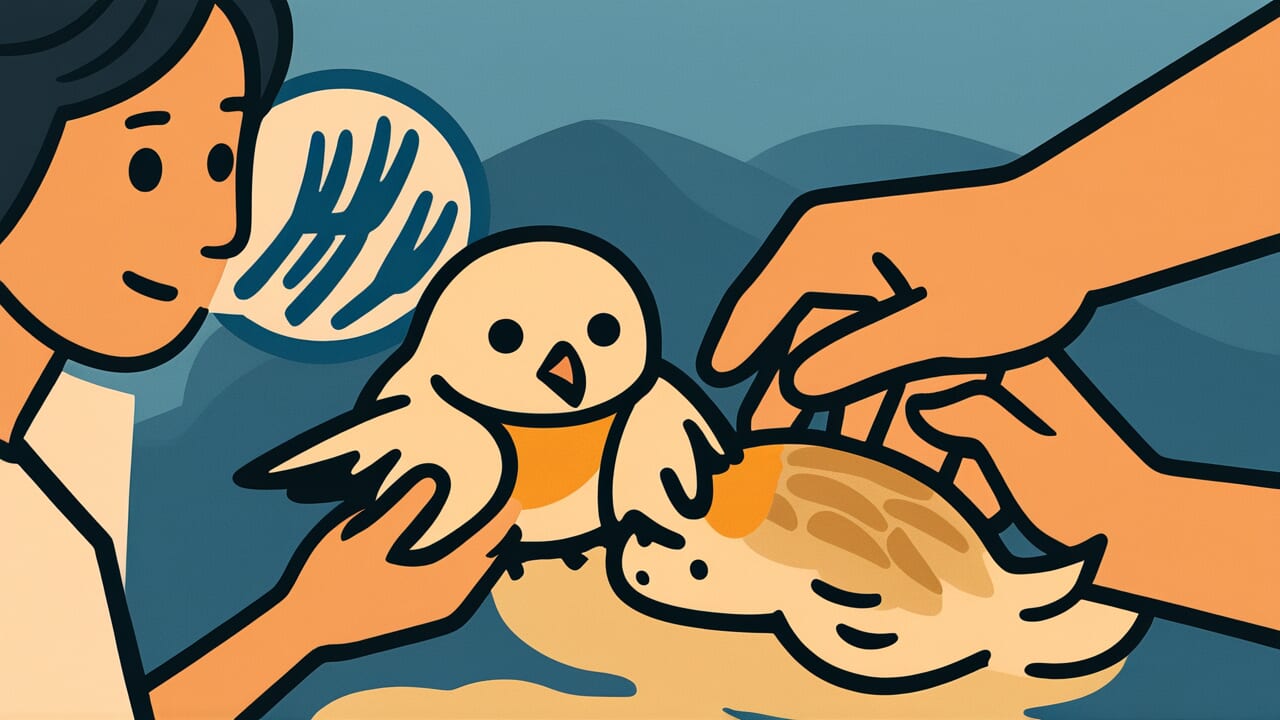How to Read “Feed both lowly people and hawks”
Gesu to taka to ni e wo kae
Meaning of “Feed both lowly people and hawks”
This proverb teaches that both people of low character and excellent people need proper treatment. At first glance, these seem like opposite types of people. But they share something important: both cause problems if neglected or treated poorly.
If you ignore people of low character, they build resentment and may harm your organization. Giving them minimum treatment prevents unnecessary trouble.
On the other hand, excellent people cannot show their full abilities without proper treatment. Talented people need appropriate rewards to use their skills.
This proverb is used as practical wisdom for leaders and managers. Organizations cannot run on ideals alone. This expression is used when realistic management of human relationships is needed.
Even today, people understand this as a saying that captures the essence of managing people.
Origin and Etymology
The exact source of this proverb is unclear. But the structure of the words reveals an interesting background.
“Gesu” means people of low status or poor character. This expression has been used since medieval times. “Taka” (hawk) was a noble bird treasured in samurai society. Falconry was a symbolic entertainment of the powerful.
The expression “e wo kae” (feed) is noteworthy. The word “kau” means “to raise” or “to give.” Here it teaches to give proper food.
Hawks were valuable as excellent hunting birds. Proper food and management were essential to bring out their abilities. Falconers carefully adjusted the amount and quality of food based on the hawk’s condition and training state.
What makes this proverb interesting is that it places opposite beings side by side. Feeding people of low character may seem strange at first.
However, this shows practical wisdom for running organizations and society. Neglecting difficult people may cause harm. Treating excellent people poorly means they won’t show their strength.
Treating both properly maintains overall order and efficiency. This contains the wisdom of governance.
Interesting Facts
Hawks used in falconry had their food strictly controlled. If fed too much, they wouldn’t hunt. If too hungry, they lost strength and couldn’t fly.
Falconers weighed their hawks daily. They adjusted food by the gram to bring out the best performance. This delicate management technique may symbolize the importance of proper treatment for excellent people.
“Gesu” as a word may have come from the Buddhist term “geshu.” It originally meant planting the seeds of Buddha’s teachings. Later it came to mean people of low status. The evolution of word meanings is fascinating.
Usage Examples
- That employee has many problems, but “feed both lowly people and hawks,” so let’s give minimum care
- Excellent people need proper treatment, and difficult people need consideration too—truly “feed both lowly people and hawks”
Universal Wisdom
The universal wisdom this proverb shows gets to the essence of “management” in human society. Ideally, everyone would have high character and act independently. But reality is different.
Organizations have various people. Each person has different motivations and abilities.
What’s interesting is that this proverb focuses on practical effects, not moral good and evil. You feed people of low character not to reform them, but to prevent harm.
You feed excellent people to bring out their talents fully. In other words, you don’t try to change human nature. You accept the current situation and seek the best results. This is extremely realistic wisdom.
Behind this thinking is a deep insight: human nature doesn’t change easily. Lecturing people of low character won’t make them fine people right away.
Excellent people also become dissatisfied with poor treatment and won’t show their strength. Humans are creatures who respond to environment and treatment. This proverb contains the understanding that these responses are predictable.
Our ancestors knew that society cannot run on ideals alone. Various people coexist together. To maintain overall order and efficiency, realistic responses suited to each person are needed.
This is a timeless truth of organizational management.
When AI Hears This
Even with the same reward, the result changes 180 degrees depending on the receiver’s internal state. Behavioral economics calls this “asymmetry of marginal utility.”
For example, when receiving 100 yen, a person with 100,000 yen in savings and a person with 100,000 yen in debt use that 100 yen completely differently. The former might invest it, but the latter tends to satisfy immediate desires.
This proverb is sharp because it sees food as an “amplification device.” When you feed lowly people, their existing dependency and laziness get stronger.
The psychological “immediate reward bias” works. They become accustomed to pleasure gained without effort. Meanwhile, hawks have the advanced skill of hunting instinct. The same food becomes motivation for training, and abilities bloom further.
In other words, food only amplifies existing behavior patterns.
The same phenomenon happens in modern companies. When you introduce merit-based reward systems, originally independent employees grow further. But dependent employees pursue short-sighted behavior for rewards.
Stanford University research reports that external rewards have reverse effects on people with low internal motivation.
People in the Edo period understood through experience that incentive design requires “the receiver’s capital state” as a prerequisite condition.
Lessons for Today
This proverb teaches modern people the wisdom of balancing ideals and reality. We value the principle that “all people should be treated equally.”
But in actual organizational management, responses suited to each person’s characteristics are needed.
If you lead a team, this teaching is especially important. Ignoring problematic members makes the whole team atmosphere worse.
But if you neglect consideration for excellent members, they cannot show their strength. Eventually they will leave. Both need “proper food.”
However, don’t use this wisdom as cold calculation. Receive it as depth of human understanding. People have different motivations. Different responses are needed.
Recognizing this also means respecting human diversity.
Modern society demands flexible responses suited to situations rather than uniform manuals. This proverb teaches you the importance of seeing each person and finding the best way to relate to them.



Comments